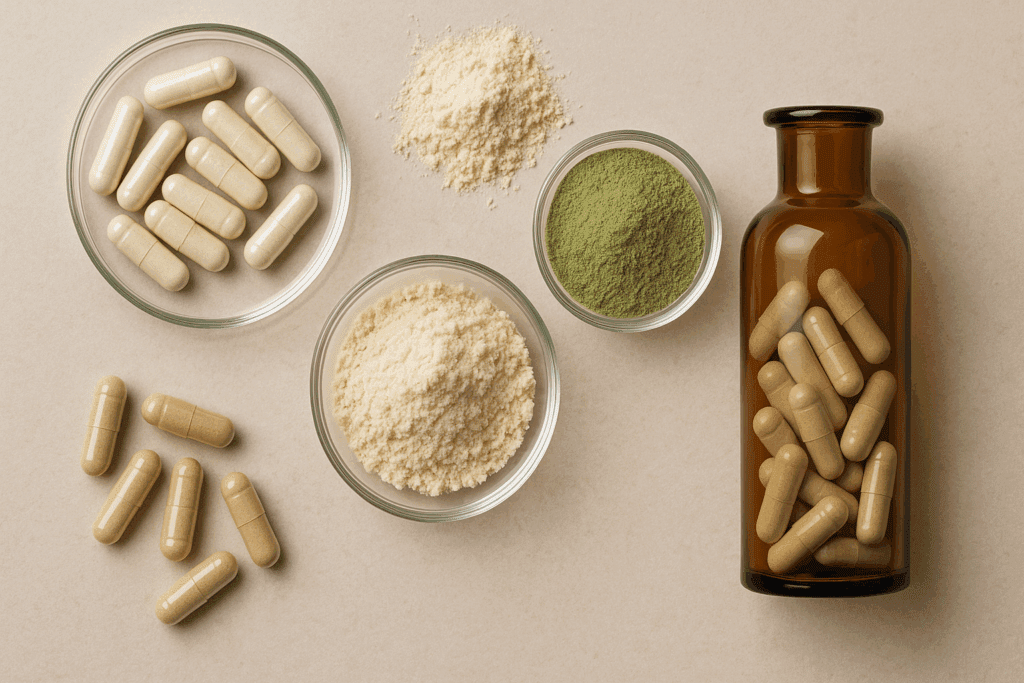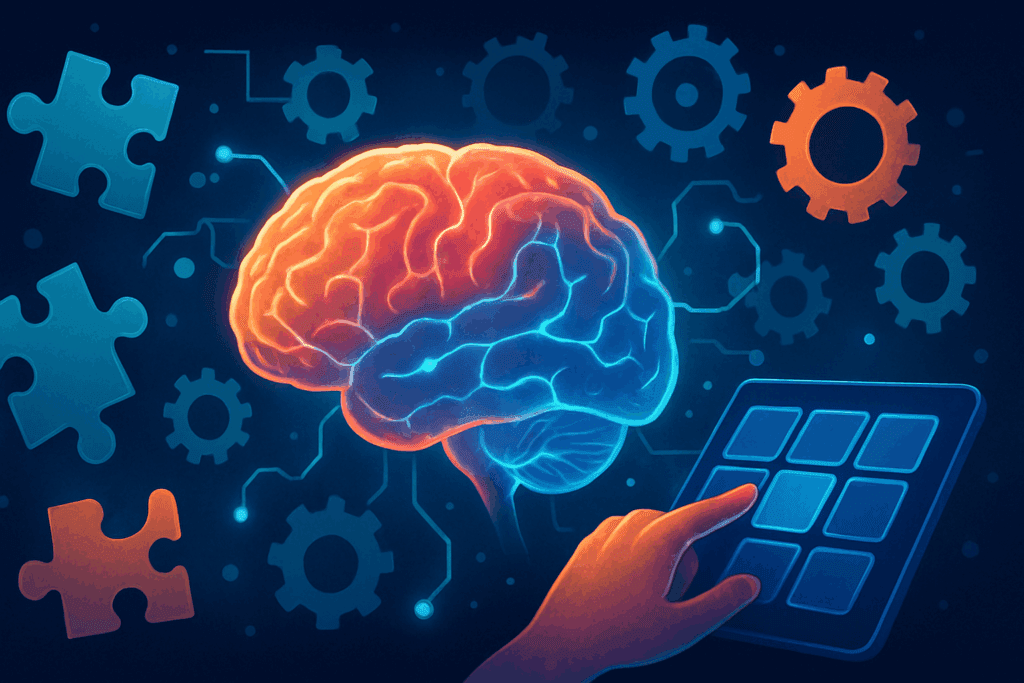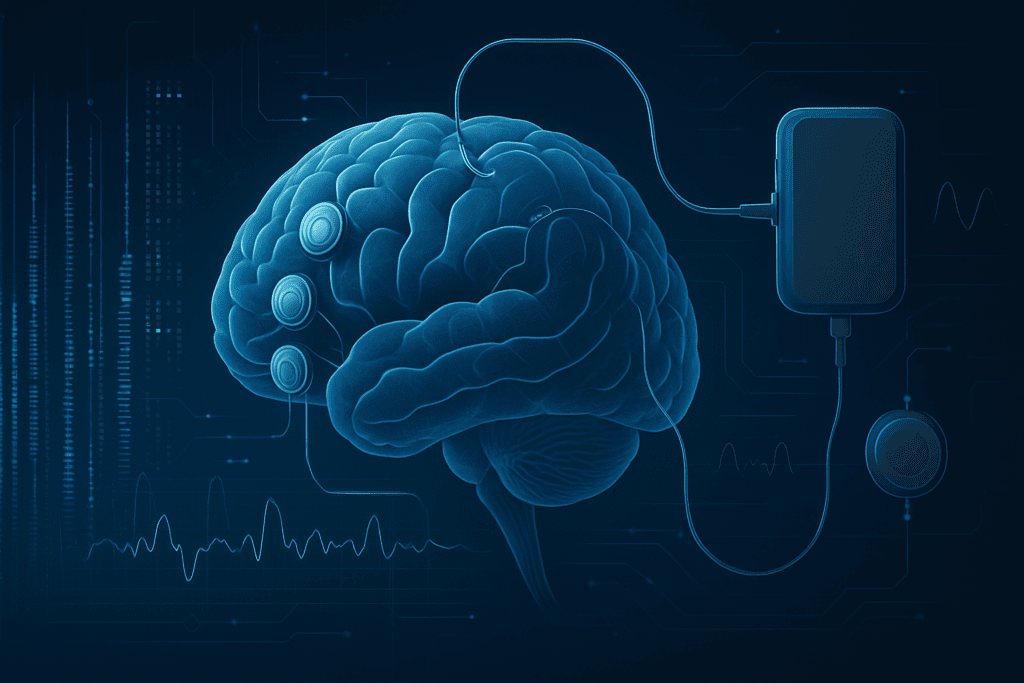Rhodiola Rosea: The Resilience Root That May Sharpen Focus and Reduce Mental Fatigue
Among the most compelling herbs for ADHD in women is Rhodiola rosea, often known as the “golden root.” Indigenous to Arctic regions of Europe and Asia, Rhodiola has long been used to combat fatigue, enhance physical endurance, and improve cognitive function under stress. What sets this herb apart in the context of ADHD is its dual capacity to reduce cortisol levels while enhancing dopamine sensitivity. These two effects are critical for women whose executive functioning and focus may be impaired by stress-related dysregulation.
You may also like: Best Herb for ADHD Support: How Natural Remedies and Herbs for ADHD Women May Help Boost Focus and Calm
In clinical settings, Rhodiola has shown promise in enhancing mental performance during tasks that require sustained attention—an area where many women with ADHD struggle, especially during hormonally sensitive periods. Notably, its ability to boost short term memory and sharpen cognitive clarity is well-documented in randomized, double-blind trials. For students or professionals wondering how to memorize for exams, how to remember stuff when studying, or even how to memorize something fast for a test, Rhodiola offers an adaptive edge without the jittery side effects often associated with stimulants.

Integrating Rhodiola into a daily routine may help with building short term memory while also supporting emotional resilience. These effects are synergistic with memory methods for studying and study skills memorization techniques, making Rhodiola a suitable option for women looking for holistic support that is both neurologically nourishing and mentally energizing. Furthermore, its role in helping the brain stay sharp as you age positions it as a potential long-term ally for cognitive longevity.

Ginkgo Biloba: The Memory Tree That Supports Circulation and Word Recall
One of the most widely studied natural nootropics, Ginkgo biloba continues to be a favorite among clinicians and herbalists alike for improving memory, focus, and mental sharpness. Derived from the ancient maidenhair tree, Ginkgo is rich in flavonoids and terpenoids that help increase blood flow to the brain and protect neural tissue from oxidative damage. For women with ADHD, especially those experiencing word-finding issues or mental fog, Ginkgo can be a powerful botanical to help improve word recall and overall processing speed.

Ginkgo’s ability to enhance cerebral circulation makes it particularly useful for those struggling with how to remember what you read for exams or how to remember things while studying. When blood flow improves, so does the delivery of oxygen and nutrients essential for neurotransmitter function and memory consolidation. These effects make Ginkgo a practical option for those looking for ways to sharpen their mind and how to increase short term memory with natural, time-tested support.

In combination with structured learning practices such as spaced repetition, Ginkgo can contribute to more efficient memory methods techniques. It may also be beneficial for those seeking to learn how to memorize something in 10 minutes by maximizing synaptic plasticity during high-intensity study sessions. With consistent use, Ginkgo may contribute to how to stay mentally sharp into your 80s and beyond by defending against age-related cognitive decline, thus making it not just a memory enhancer but a lifelong neural guardian.

Frequently Asked Questions (FAQ): Memory Recall and Short-Term Cognitive Support
1. What are some lesser-known lifestyle habits that can help recall information faster?
To help recall information more efficiently, consider incorporating multisensory encoding techniques—like pairing visuals with sounds or physical movement. For example, when trying to remember a list, use spatial association, like imagining the items placed around your house. Studies also suggest that moderate-intensity aerobic exercise improves hippocampal connectivity, a brain region critical for memory. Sleep hygiene is equally vital; fragmented sleep can impair how to increase short term memory consolidation. Intermittent fasting, although still under study, has shown early promise in improving synaptic plasticity, which supports both long-term and short-term memory.
2. How does social interaction impact short-term memory and word recall?
Human connection activates neural pathways that contribute significantly to cognitive agility. Engaging in meaningful conversations challenges the brain to process language, emotions, and memory simultaneously—enhancing how to improve word recall in the long term. Regular social stimulation also reduces cortisol, a stress hormone known to impair short-term memory. Surprisingly, group storytelling activities have been shown to boost short term memory and improve lexical access. Building short term memory through collaborative tasks not only reinforces retention but also creates emotionally charged anchors that help recall information more reliably.
3. Can memory training games actually improve short-term recall or are they just gimmicks?
When approached strategically, memory training tools can meaningfully contribute to how to improve recall and cognitive resilience. The key lies in selecting evidence-based platforms that adapt to your cognitive performance over time, rather than static, repetitive games. Neurofeedback tools and apps that challenge executive function, attention, and rapid task-switching are particularly effective at building short term memory. While not a cure-all, these tools provide structured routines that support neuroplasticity. To truly boost short term memory, combine digital training with offline activities like memorizing poetry or engaging in improvisational speaking.
4. Are there any emerging natural compounds or supplements that support short-term memory and recall?
Yes, recent studies have explored promising compounds like citicoline, saffron extract, and phosphatidylserine for their potential to help recall and strengthen working memory. Citicoline, in particular, supports acetylcholine production—a neurotransmitter essential for how to improve word recall. While Ginkgo biloba and Bacopa monnieri are widely known, lesser-discussed botanicals like lion’s mane mushroom and gotu kola also show potential in clinical trials for building short term memory. However, supplement quality, dosage, and individual health status all influence outcomes. Always consult with a healthcare provider before combining supplements aimed at how to increase short term memory.
5. How can music and rhythm be used as tools to help boost memory retention?
Music activates diverse brain regions simultaneously, including those tied to emotion, pattern recognition, and language. This multisensory engagement can significantly help recall and reinforce encoding. Rhythmic structures—such as in rap lyrics or poetry—enhance chunking strategies, which are known to boost short term memory. Using familiar tunes to encode information (like the ABC song) is a powerful strategy, especially for individuals seeking to understand how to increase short term memory through creative methods. Emerging research even suggests personalized playlists tailored to one’s neural preferences may optimize building short term memory performance over time.
6. Can chronic stress hinder efforts to improve recall and short-term memory?
Absolutely. Chronic stress triggers sustained cortisol release, which damages hippocampal neurons—the very cells responsible for encoding and retrieving memories. If you’re striving to learn how to improve recall, stress management must be foundational. Techniques like box breathing, journaling, and exposure to natural environments help restore balance to the nervous system. Interestingly, individuals who engage in regular gratitude reflection show higher recall performance, suggesting emotional regulation directly aids in how to increase short term memory. Prolonged stress also disrupts verbal fluency, which can hinder how to improve word recall in professional and academic settings.
7. How does bilingualism affect word recall and short-term memory performance?
Being bilingual offers a cognitive workout that fortifies executive function and memory switching. While it may sometimes delay how to improve word recall in one language due to competition between lexicons, it ultimately enhances neural flexibility. Bilingual individuals often outperform monolinguals in tasks requiring rapid adaptation and inhibition control—both essential for building short term memory. Moreover, code-switching trains the brain to manage multiple linguistic systems, a practice that indirectly helps recall across domains. These advantages persist into old age, making bilingualism a potential long-term strategy for how to increase short term memory durability.
8. What role does hydration and nutrition play in supporting short-term memory and recall?
Dehydration—even as little as 2% fluid loss—can impair cognitive performance, especially in areas tied to alertness and how to improve recall. Brain cells require adequate glucose and electrolyte balance to function properly, so skipping meals or relying on processed food weakens synaptic efficiency. Omega-3 fatty acids, flavonoids, and B vitamins are essential for neurotransmitter synthesis and help recall formation. Foods like walnuts, dark leafy greens, and wild-caught fish have been specifically linked to how to increase short term memory via anti-inflammatory pathways. Balanced nutrition is not just beneficial—it’s foundational for building short term memory strength.
9. How can people with learning differences like ADHD or dyslexia improve their short-term memory?
Individuals with ADHD or dyslexia often experience challenges in working memory and attentional filtering, but targeted strategies can still help recall and retention. Multimodal instruction—combining auditory, visual, and kinesthetic learning—can significantly improve how to increase short term memory performance. For example, color-coded flashcards and rhythmic repetition can reinforce concepts more effectively than passive review. Executive function coaching, memory scaffolding, and adaptive technologies are also valuable tools in building short term memory capacity. Importantly, fostering a growth mindset encourages persistence, even when how to improve word recall feels especially difficult.
10. What are some future directions in neuroscience that may revolutionize how we improve recall?
Advancements in neurostimulation—like transcranial magnetic stimulation (TMS) and transcranial direct current stimulation (tDCS)—offer exciting possibilities for how to improve recall without pharmacological interventions. Researchers are also exploring “memory prosthetics” that use brain-computer interfaces to restore or enhance short-term memory encoding. AI-based cognitive training, informed by real-time EEG patterns, may soon allow for personalized protocols that precisely target how to increase short term memory. Meanwhile, epigenetic research is uncovering how lifestyle can turn memory-related genes on or off, helping to fine-tune how to improve word recall naturally. These innovations promise not only to help recall in the short term but potentially reverse age-related decline.

Gotu Kola: The Ayurvedic Tonic for Calm Clarity and Cognitive Focus
Another underrated yet highly effective herb for ADHD in women is Gotu kola (Centella asiatica), an adaptogenic plant with roots in both Ayurvedic and Traditional Chinese Medicine. Unlike some stimulatory herbs, Gotu kola works in a more subtle and restorative manner. It enhances focus and memory by promoting brain cell regeneration and strengthening the integrity of blood vessels, particularly those serving the brain. Its ability to calm the nervous system while enhancing cognitive clarity makes it an excellent choice for women who experience ADHD symptoms alongside anxiety or sleep disruption.
Gotu kola has been linked to improvements in both short-term and long-term memory in several animal and preliminary human studies. Its cognitive benefits are most pronounced when combined with a learning-focused routine. When used with the best memorization techniques and good study techniques for memorization, Gotu kola may help recall key information more easily while also reducing mental agitation that hinders focus. This dual-action makes it an ideal ally for those juggling busy lives and looking for tips for memorizing that actually support nervous system health rather than drain it.
Its gentleness on the system also makes it a safe option for those interested in how to memorize things fast for exam success without overstimulating the adrenal system. Because it supports neurotransmitter balance while improving microcirculation, Gotu kola may help individuals memorize something overnight or retain text faster by creating optimal neural conditions for memory encoding and retention.


